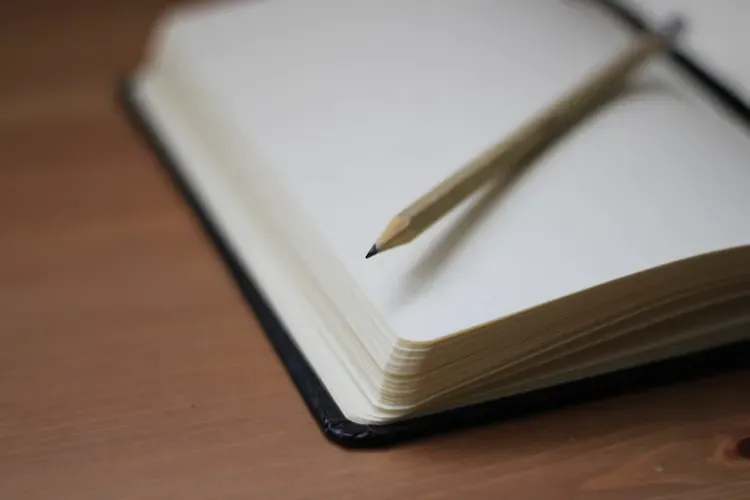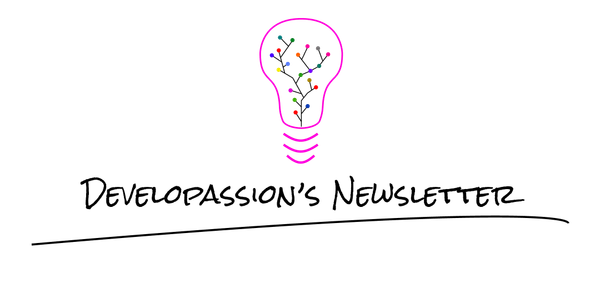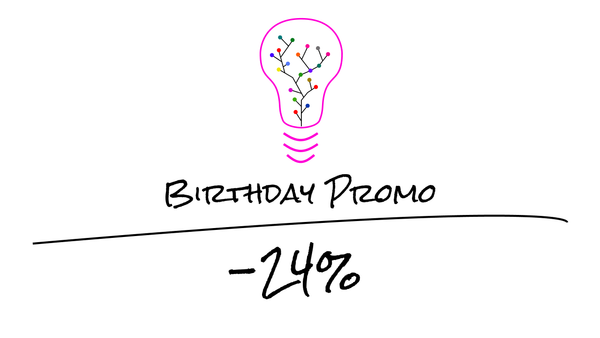How to Take Notes at Work and Never Forget Anything
How to organize notes at work and never forget anything. Be on top of your game at work.

I almost never forget things at work. When I do, I really feel embarrassed. What about you?
For me, it is merely a matter of professionalism. I hate it when people make commitments or even promises and simply forget. IMHO, if they forget, it either means that they’re not well organized (which leaves me with a bad impression) or that they don’t care (which is really disappointing). Of course life is more complicated than this but that’s the general idea…
In this article, I’ll share my approach for tracking tasks/ideas/commitments/etc.
Note that this is a very opinionated piece and it only covers a part of the overall picture. I’ll probably post other articles to explain additional aspects of my approach (I don’t dare call it a methodology just yet).
How to Capture Tasks
What I call a task is something “actionable” in some way. A task can be something that I need to do, a call that I need to make, an appointment/meeting to set, information to gather/verify, things to learn, reminders to define, etc. Note that I already wrote about my approach for tagging tasks.
During meetings, there are often tons of tasks to capture (aka action points). Organizations that aren’t mature often fail to capture those, spend time (and money) discussing, without keeping track of what needs to be done. This is one of the many symptoms of useless meetings during which there’s a lot of discussion going on, but no concrete outcome.
The thing is that even if your organization as a whole is not mature at all, it’s not a reason for you to just use meetings as coffee breaks; you can be locally more mature than the rest of your organization and even show the way to others. But I’m digressing; I’ll write about meetings another day ;-)
Should you Use Paper or Digital Means to Take Notes?
Born in 1983, I’m clearly a digital native; I didn’t have a tablet in my hands when I was two like my children did, but at seven I was already in front of a computer, discovering and playing with the digital world.
I generally prefer digital solutions for many things in my life, from music to books/comics/mangas, agenda, time tracking, project management, task tracking, etc. I don’t have the need for “the feel of paper”. I do of course respect people that prefer paper, but it’s just not my case.
Still, people at work will rarely see me without a notebook around. When I go to meetings, I always prefer taking notes on paper rather than bringing my laptop along with me.
Why is that? Because, so far, I haven’t found any digital solution that gives me as much freedom with so little friction for taking notes, sketching, writing down ideas, etc while keeping my attention on what’s being said around me.
To me, digital solutions are clearly not on par with paper note taking. Using digital solutions often takes my attention away, which is horrible. Whenever I interact with others, giving my full attention is super important. Without that, it’s impossible to really listen, think and take useful notes.
And, I must admit, there’s a pleasure that comes with taking notes with pen and paper that I don’t feel when typing on a keyboard (even if I love typing).
What to Write Down at Work?
People that see me scribble all the time during discussions might think that I either write down my incredible ideas (I wish :p) or am just fooling around while they discuss the important matters.
In fact, I mostly use my notebook to write down tasks (things that my team or I should take care of, check, verify, etc) the deadlines (if any) and ideas that are being discussed. This log (actually rough meeting minutes) is super useful to me, as it condenses everything that has been discussed. As a matter of fact those minutes are useful to everyone; I’ll come back to this.
The same is true while I’m working alone; I very often write down tasks that I identify, ideas to think about later, design sketches, etc.
This note taking process allows me to keep my attention on what I’m doing and avoid going sideways, while still capturing everything that matters.
The thing is that I don’t trust my memory all that much. Maybe I should trust it more, maybe not.. I simply believe that I’ve got enough on my mind already without cluttering it with a todo list. My notebook is my trusted system.
Although, I only rely on my notes for short periods of time.
How to Perform Rapid reviews
After a meeting, at the end of the day and/or at the end of a week, I like to review my notes and update them, striking out everything that’s not important or that has been done. Everything that remains needs to transit to my digital systems, unless it’s something that I’ll do right next (e.g., sub-tasks of what I’m currently busy with).
Each type of note belongs somewhere digital:
- Tasks belong in issue trackers (e.g., JIRA, Github issue, Gitlab issues, Trello and the like)
- Ideas belong in idea logs (same tools but with specific labels)
- Meeting minutes belong in a solution like Didowi (the project I’m currently working on) or in a wiki page, for everyone to see
- Reminders belong in calendars
- …
Once my rapid review is done, I simply cross the entire pages; they aren’t useful to me anymore.
Most of the time, I start each new week with a clean slate. My notebook is only ever relevant for the current week. The past belongs in digital solutions.
The main reason for this is that I can’t share my notebook with others. Simply scanning the pages wouldn’t do any good. My notes are usually messy (like my mind), “disorganized” and many things are mixed within the pages (e.g., personal notes, work notes, personal ideas, meeting minutes, project tasks, ideas, etc). My notebook is personal; it acts like a temporary memory for me; an “extension” of my brain. It’s mine and I wouldn’t want anyone to go through it.
The other reason is that I could lose my notebook and I don’t have it with me all the time. Digital solutions remain available at all times, anywhere. They’re backed up, etc.
Finally, I can configure the digital solutions to remind me about what’s important, so that I don’t have to think too much.
How to Get Things Done
I’ve read David Allen’s “Getting Things Done” book a few years back and I really recommend you to go grab a copy and do the same if you haven’t already. The GTD methodology has stood the test of time. It is super simple and can really help you get (better) organized. Basically it's a small set of ideas and principles to follow to be more efficient and take informed decisions.
I can’t say that I fully apply David’s methodology. I’ve just adapted it over the years and integrated ideas from other sources.
Here are the main principles that I apply from GTD:
- Capture everything that is relevant: what I’ve explained above and also the mindmap that I always carry around with me
- Review the notes a first time and decide what is actionable
- 2 minute rule: if it takes less that 2 minutes, do it immediately; otherwise, delegate what can be (see Management 3.0 delegation guidelines)
- Put reminders for important tasks / tasks where there’s a strict deadline
- Review the backlog regularly enough to update/prioritize and decide what to do next
- JUST DO IT
Benefits of Taking Notes at Work
The biggest benefit I get from my approach is that I manage to keep my attention where it belongs at all times: either on what people around me are saying/asking/imagining, or on the task at hand.
The second one is the fact that I write down everything that matters. I won’t commit to do something for someone else unless I have it written down in my notebook.
Since I regularly review my notes and use the relevant digital tools based on the type of content, I can benefit from all the good stuff that comes with the digital world.
My notepads are also secure because my handwriting is so terrible that probably very few people in the world could mimic it. My handwriting is actually so bad that even the confidentiality is ensured as even fewer people can actually read it ;-). The only missing property is availability, which can indeed be a problem sometimes
Finally, my old notebooks are my log files. They don’t matter much, but sometimes they can prove useful.
Conclusion
Humans are creatures of habit and I’m no exception. I’ve started writing things down a long long time ago and it has served me well over the years. Today, I wouldn’t consider working in a different way.
Digital solutions are awesome (otherwise I wouldn’t be a software craftsman), but they aren’t always better than analog solutions. The digital world doesn’t have to replace the analog world for everything ;-)
That's it for today! ✨
About Sébastien
I'm Sébastien Dubois, and I'm on a mission to help knowledge workers escape information overload. After 20+ years in IT and seeing too many brilliant minds drowning in digital chaos, I've decided to help people build systems that actually work. Through the Knowii Community, my courses, products & services and my Website, I share practical and battle-tested systems. You can follow me on X 🐦 and on BlueSky 🦋.
I am an author, founder, and coach. I write books and articles about Knowledge Work, Personal Knowledge Management, Note-taking, Lifelong Learning, Personal Organization, and Zen Productivity. I also craft lovely digital products.
If you want to follow my work, then become a member and join our community.
Ready to get to the next level?
If you're tired of information overwhelm and ready to build a reliable knowledge system:
- 🎯 Join Knowii and get access to my complete knowledge transformation system
- 📚 Take the Course and Master Knowledge Management
- 🚀 Start with a Rock-solid System: the Obsidian Starter Kit
- 🦉 Get Personal Coaching: Work with me 1-on-1
- 🛒 Check out my other products and services. These will give you a rock-solid starting point for your note-taking and Knowledge Management efforts





